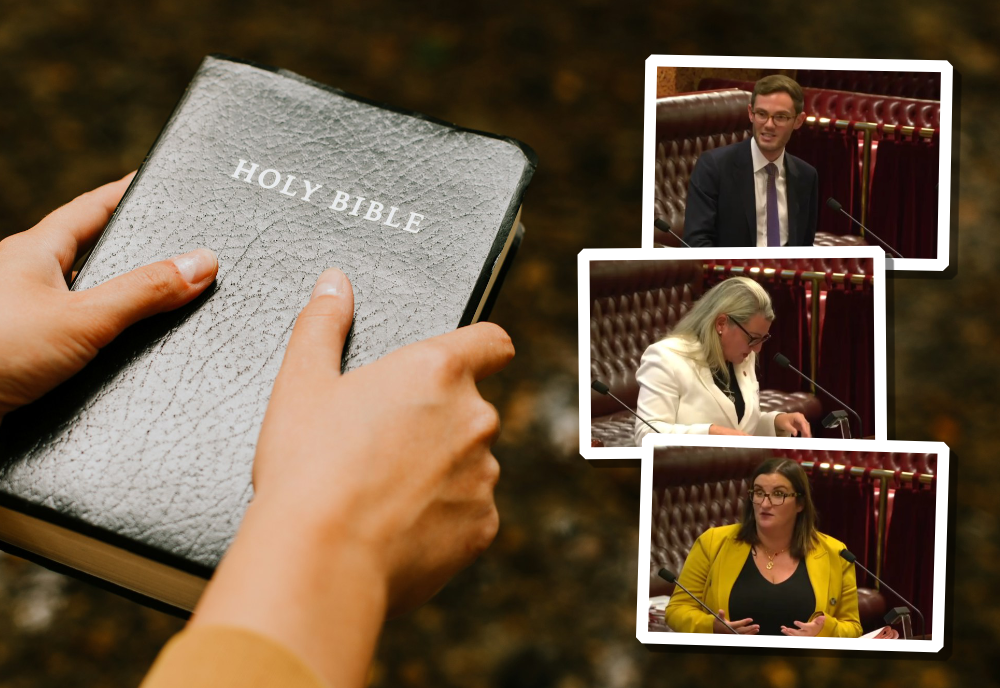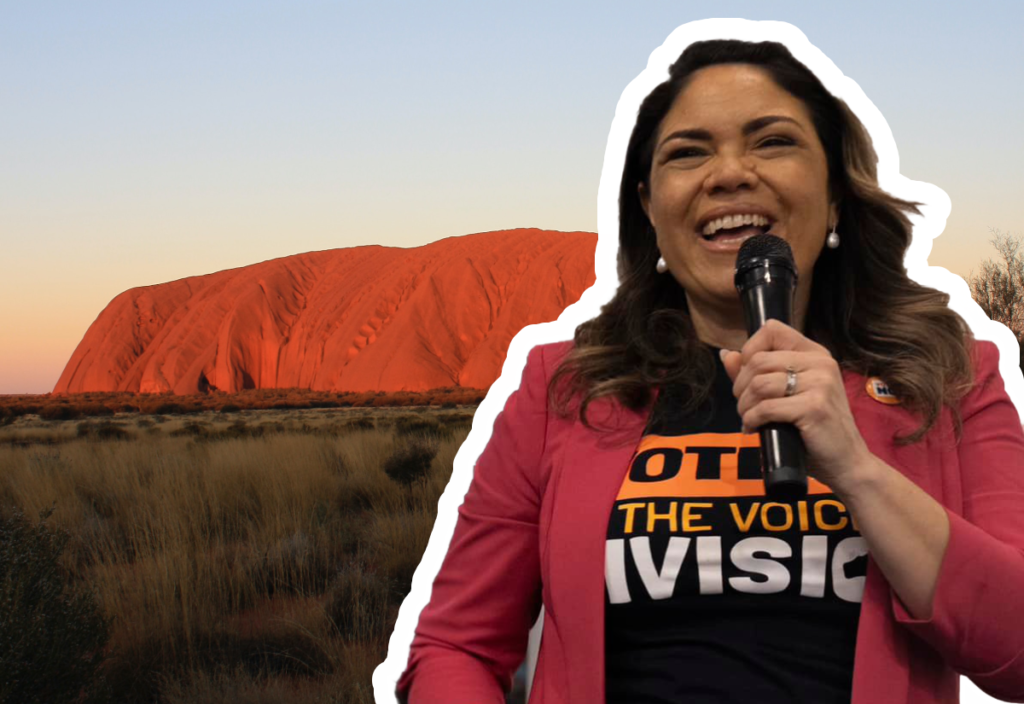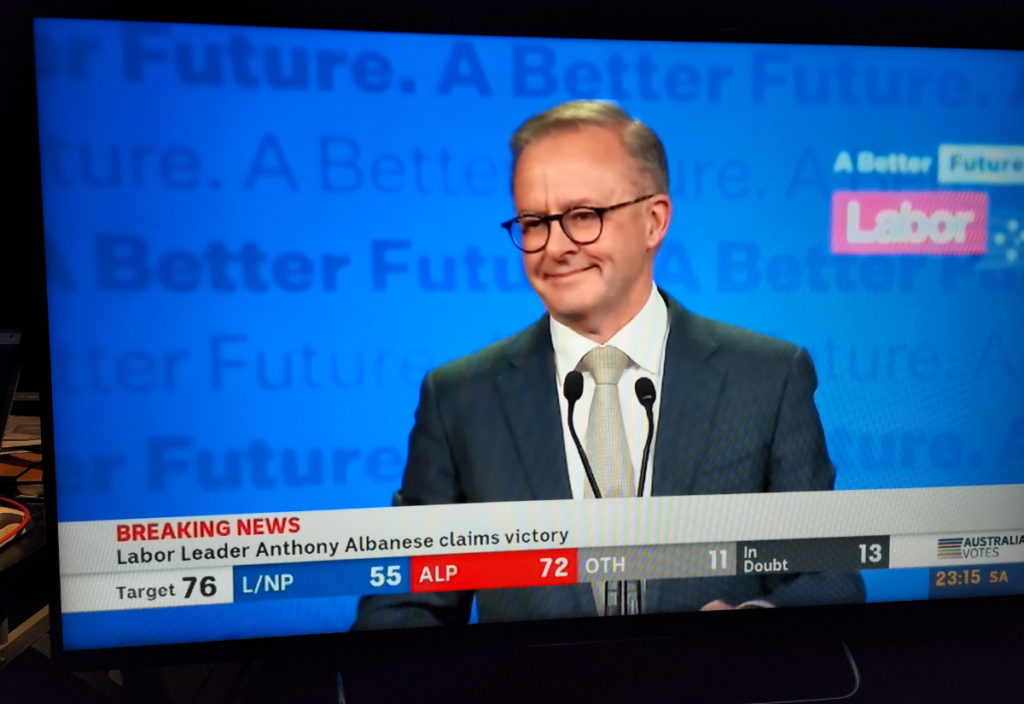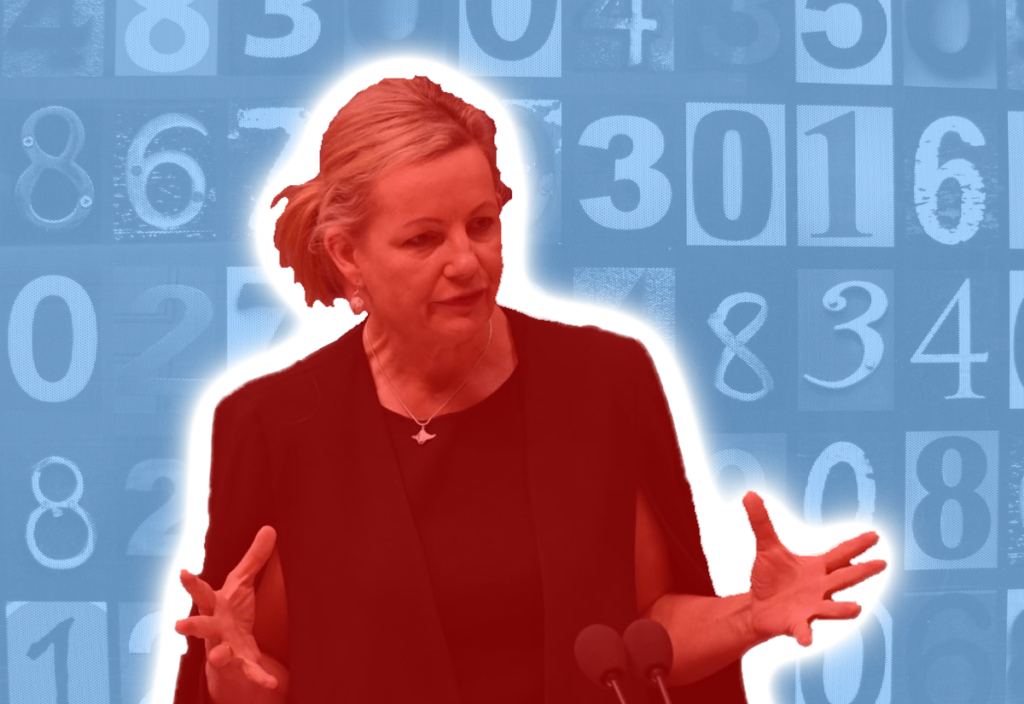Last month, as Queensland stepped up its efforts to vaccinate children before the start of the school year as the Omicron COVID-19 variant spread rapidly throughout the state, a chaplain at a public school ventured onto a Facebook page for the school’s parents to offer some advice.
“Hi all, not sure if I’m crossing a line here, but I had to share, so you are informed on one of the most crucial decisions you will make for your children at this point in time. Please read and be informed. Please don’t take this decision lightly,” the chaplain said.
The chaplain, whose position at the school is funded by taxpayers under the federal government’s National School Chaplaincy Program, shared with parents a link to an open letter which raises concerns about the safety of the COVID-19 vaccines and urges the federal government to stop the roll-out to children.
The letter, the chaplain said, had been written by “well known and respected health organisation’s [sic] in Australia (with evidence from Pfzer [sic] supporting their request) to the Australian politicians to call for the HALT of the proposed roll out of the covid vaccnation [sic] programme to Australian children.” The chaplain added at the end: “It was sent to and signed by the TGA”.
The letter was not signed by the Therapeutic Goods Administration. It was signed by organisations claiming to represent “thousands of doctors, nurses and allied health practitioners, including many eminent in their fields”. One of the organisations, the World Council for Health, called for governments and corporations to “cease and desist” from manufacturing, distributing, administration or promoting “experimental” COVID-19 injections. Other organisations that signed the letter included new unregistered unions, such as the Nurses Professional Association of Australia, which was set up for health professionals who opposed vaccination mandates in their workplace.
After complaints by some parents in the Facebook group, the chaplain apologised “for the way some took my previous post”. The chaplain went on to say they just wanted to caution parents and make sure they were informed of the new “evidence” about the practice of vaccinating children. “I believe you want the best for your children and I am not questioning this. I was wanting to support you in whatever you decide.” Receiving several supportive comments to the post, the chaplain re-shared the link to the open letter.
The act of promoting such information within the school community, countering the Queensland government’s efforts to vaccinate children, is just the latest incident in a long list of concerns about the controversial school chaplaincy program and the people it sends into schools on the taxpayers’ dime.
In a report in Brisbane’s Courier Mail yesterday, the state’s education department said, while it “does not endorse the views expressed” by the chaplain in the social media posts, little action could be taken.
On a mission
Since the Howard government introduced the National School Chaplaincy Program, the federal government has spent more than $1 billion on inserting religious chaplains into public schools – except for a brief period when non-religious youth workers were included under the Gillard government.
Instead of prioritising the needs of children and school communities through the funding of suitably qualified and experienced youth workers, successive Australian governments have instead chosen to prioritise the religious credentials of the people working in these roles. One could only conclude that the government has decided that kids in public schools need Jesus ahead of professional wellbeing support.
Each year, the federal government delivers more than $60 million in taxpayers’ money to state education departments, which then contract religious-based service providers to hire chaplains. The roles are subsequently advertised for people of faith who have recognised religious credentials, such as through formal ordination, religious qualifications or endorsement by a religious institution.
In practice, the program has opened the doors of public schools to religious missionaries, many of whom hold beliefs at odds with school communities and wider society. In Western Australia, a number of the school chaplains are products of Margaret Court’s Victory Life Bible College. Court’s Pentecostal church holds anti-homosexuality views. Sermons at the church incorporate speaking in tongues and practising faith ‘healing’ in which pastors tell people not to worry if they’re suffering chest pains and claim to heal people’s headaches with words. When the pandemic began, Court told her congregation that the virus couldn’t touch them because they were protected by the “blood of Jesus”.
In practice, the program has opened the doors of public schools to religious missionaries, many of whom hold beliefs at odds with school communities and wider society.
Over the years, numerous complaints have surfaced in the media about school chaplains using their position to propagate ideologies out of step with mainstream Australia. In one case, a chaplain told an anorexic child she was “hungering for the word of God”. In another, a chaplaincy provider referred to homosexual activity as a “serious sin”.
Under the national agreement between the federal government and the states, chaplains are not supposed to proselytise when they’re in schools – which, surely, raises the question of why these roles need to be filled by religious people. But some chaplains have been instructed to promote Christian theology.
In Western Australia, after pressure from a group called WA Public School Alliance last year, the McGowan government told the media that chaplains were not allowed to proselytise. Yet, one of the contracted chaplaincy providers in WA, YouthCARE, advertises jobs with selection criteria that require applicants to have a “demonstrated capacity to sensitively relate the Christian faith in a secular context”.
According to YouthCARE, 2.5 per cent of the chaplains it recruits for public schools come from Court’s Victory Life Bible College. In the Certificate IV in Christian Ministry delivered by the Bible college, one of the units is focused on providing prospective school chaplains with “basic skills for evangelism and [to] prepare them to communicate a personal testimony to an audience”. YouthCARE’s website states: “As a Christian organisation, we exist to express God’s love and presence in educational communities throughout WA.”
Scripture Union, another provider of Christian chaplains in the WA’s public schools, tells prospective job applicants on its website that the chaplaincy program provides an opportunity for “churches to connect with and grow their local communities”. In Queensland, Scripture Union says it has a mission to “bring God’s love, hope and good news to children, young people and their families”.
While governments may deny that chaplains are using the program and their access to children to proselytise or connect children to churches, clearly the Christian service providers that hire the chaplains see things differently.
Demands for change
With a federal election on the horizon, a group of parents has launched a new effort to inspire other parents and carers across the country to demand change to the National School Chaplaincy Program.
The parents’ online petition, which calls for the program to be opened up to suitably qualified youth workers and for the removal of the religious requirement, is gaining traction. Since the petition launched a couple of weeks ago on 14 January, almost 17,000 people have signed it.
In the petition, the parents argue that the practice of hiring only religious people discriminates against non-religious people who otherwise may be suitably qualified and well-experienced in youth work and wellbeing support. They say it also discriminates against non-religious children in preventing them from accessing the secular support they need.
The religious-based discrimination inherent in the program is coming under scrutiny in a number of states. The Rationalist Society of Australia has raised the issue with the equal opportunity commissions or human rights commissions in Victoria, Tasmania, Queensland and Western Australia. These states have anti-discrimination laws that make it unlawful to discriminate against a person on the basis of religion in employment.
In response, the Victorian government has changed its policy to allow chaplains to be of “no faith”. In Western Australia, the Equal Opportunity Commission agreed with the suggestion that the practice of restricting chaplaincy positions to Christians constituted “prima facie religious conviction discrimination”. The Tasmanian Anti-Discrimination Commission has asked the state’s Department of Education to explain. In Queensland, the Human Rights Commissioner has held face-to-face discussions with staff from the Queensland Department of Education on the matter, having notified the department of “potential contraventions of the [Queensland Anti-Discrimination] Act”.
The federal education department is set to review the “effectiveness of the chaplaincy program in supporting the wellbeing of school communities” this year, following recommendations by a parliamentary committee looking into mental health and suicide prevention. There appears to be overwhelming agreement on the need to fund extra trained psychologists and counsellors in schools. For the lower-level roles that chaplains fill, the question the federal government needs to answer is why these people need to be religious.
Judging from the response to the online petition, Australians are now demanding an answer to this question. Parents and carers just want their kids to have access to the best support possible, with youth workers appointed based on qualifications and job experience, not religious credentials. Until that happens, the federal government will continue to let down new generations of Australian kids.
Photo by on Priscilla Du Preez on Unsplash.














